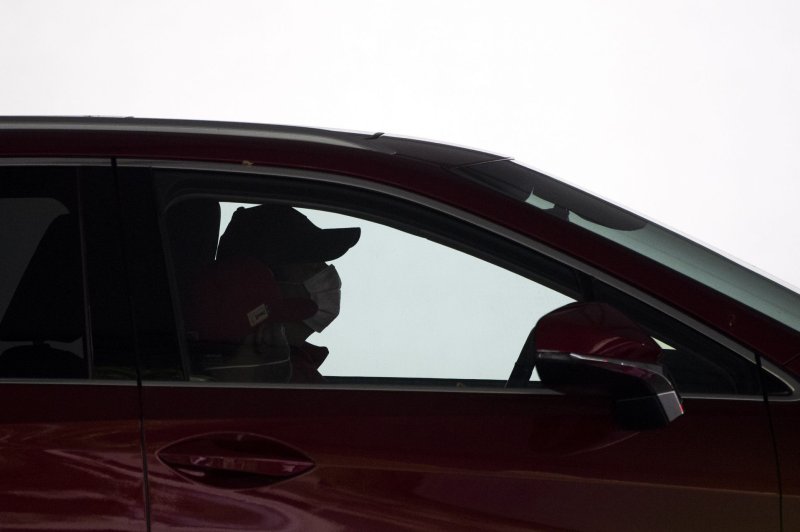A patient waits to receive a COVID-19 test at a testing site run by George Washington University Hospital during the coronavirus pandemic in Washington, D.C., at the White House in Washington, D.C. on Tuesday. Photo by Kevin Dietsch/UPI |
License Photo
April 21 (UPI) -- The Trump administration announced plans on Tuesday to send teams working under the direction of the U.S. Centers for Disease Control and Prevention to all 50 states to conduct COVID-19 contact tracing.
Administration officials said that CDC teams would be conducting surveillance on the spread of SARS-CoV-2, the coronavirus that has caused the global COVID-19 pandemic.
The teams will be tracking individuals who have been in close contact with people confirmed to have the disease so that they can be tested and, if necessary, quarantined and treated.
"If someone tests positive for COVID-19, we will want to test their close contacts or people who they may be working with in close proximity to see if anyone else has the virus," Dr. Brandon Brown, an associate professor at the Center for Healthy Communities in the Department of Social Medicine, Population and Public Health at the University of California-Riverside, told UPI on Tuesday.
"Contact tracing is just one tool we have in the COVID-19 prevention toolkit that can be used with limited tests," he added.
More than 4 million people in the United States have been tested for the virus so far, according to figures from Johns Hopkins University, and more than 800,000 people have received positive tests for the disease.
Since the disease first emerged domestically in early February, however, shortfalls in supplies of testing kits and labs capable of processing samples have been a cause for concern.
Reports suggest the CDC will be using members of its staff, in addition to private contractors, to assist state and local health departments in the efforts.
While the concept of contact tracing may be new to many Americans, the concept is well-established as a public health approach to contain outbreaks of infectious diseases. Workers contact sick individuals and anyone they have been in contact with in order to isolate them and prevent the spread of the virus.
Richard Serino, distinguished visiting fellow at Harvard T.H. Chan School of Public Health's National Preparedness Leadership Initiative and a deputy minister at the Federal Emergency Management Agency under President Barack Obama, said during a conference call with reporters on Monday that the approach may help limit future outbreaks of COVID-19 once social distancing measures in the United States are lifted.
"Test, trace and isolate is the mantra," he said. "But it's not going to be one thing that's going to get us through this crisis."
While the approach has the potential to infringe on on personal privacy, several countries -- including China, South Korea and Israel -- have already used technology to assist in tracking efforts as part of their surveillance.
Israel, for example, in March passed an emergency law enabling its health officials to use mobile phone data to track people infected with COVID-19 -- and to identify and quarantine others they come in contact with.
Going a step further, Chile announced plans to issue "immunity passports" to people who have tested positive for the disease and recovered, so that they can return to normal activities.
"If we can overcome the privacy concerns, there's a good possibility you could see something like that here," Serino said.
Dr. Anthony Fauci this month suggested a method of identifying people who have recovered or are vaccinated could be useful in the United States. Apple and Google are already working together to use phone location data to help people track if they've been near an infected person. Both ideas, however, carry controversy.
"These are great ideas and tools to use to help track cases in the community and find those who may have been exposed to infection," Brown added. "But I know many people are concerned with others knowing exactly where they are in the world by following where we move via phone."















